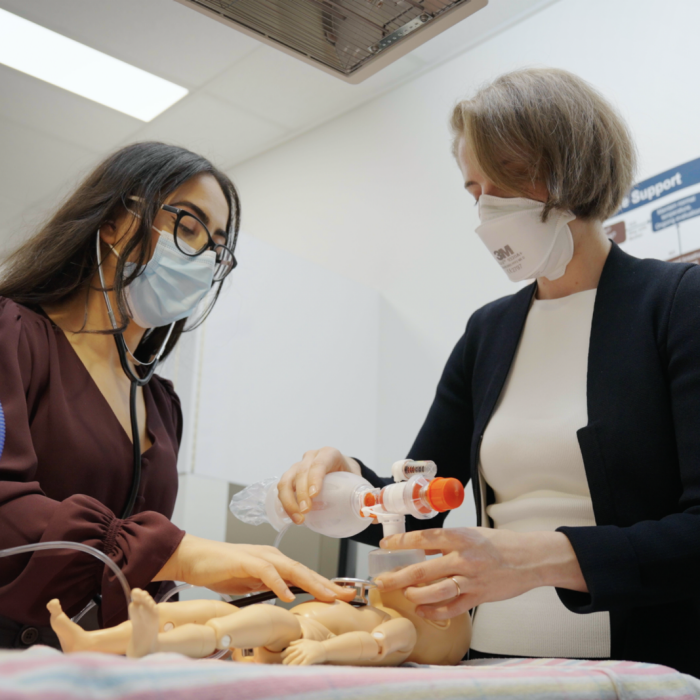- Home
- Our schools
- Study with us
- Research & impact
- About us
- Partner with us
- Conjoints
- News & events
Improving patient outcomes in rapidly expanding fields of practice
With almost one in 20 babies born through IVF in Australia, opens in a new window, reproductive medicine is offering hope and clinical support to many couples trying to have a child. Complications with HIV/STIs, infertility and unplanned pregnancy are consistent health issues that require addressing through new reproductive technologies and specialised professionals. Women's health medicine encompasses sexual, reproductive, pre-pregnancy and pregnancy care as well as the management of female specific conditions and malignancies.
Studying women's health & reproductive medicine at UNSW
Our women's health & reproductive medicine researchers are contributing and collaborating locally, nationally and internationally with novel and innovative discoveries. Our connections with the real world of ‘hands-on’ medicine brings validation across all the courses on offer. The discipline of obstetrics and gynaecology is largely based at the Royal Hospital for Women in Randwick - one of Australia’s foremost specialist hospitals for women and babies. UNSW's other teaching hospitals include the St George & Sutherland Hospital, Bankstown Hospital and Liverpool Hospital. The National Perinatal Epidemiology and Statistics Unit (NPESU), opens in a new window was formed in 1979 and is a leading source of statistical and epidemiological research in reproductive medicine, pregnancy, childbirth, and the health and care of newborns.
Our programs
-
Bachelor of Medical Studies/Doctor of Medicine (BMed/MD), opens in a new window
The undergraduate medicine program at UNSW is divided into three phases and students undertake obstetrics & gynaecology teaching all three phases.
- In Phase 1, students complete a shared clinical communications program over a six-week period.
- In Phase 2, students spend three weeks of a six-week teaching course in obstetrics and gynaecology - the discipline is also a popular choice for honours and Independent Learning Projects (ILP) for student at this stage of their studies.
- In Phase 3, students will complete an eight-week clinical program in obstetrics & gynaecology. Phase 2 and 3 students attend affiliated teaching hospitals across metropolitan Sydney and NSW regional hospitals.
-
You can study women's health & reproductive medicine in the following postgraduate research degrees:
Our research areas include:
- Endosurgery
- Maternal fetal medicine
- Menopause/Barbara Gross Research Unit
- Paediatric & adolescent gynaecology
- Reproductive medicine
- Urogynaecology
- Women's cancer

